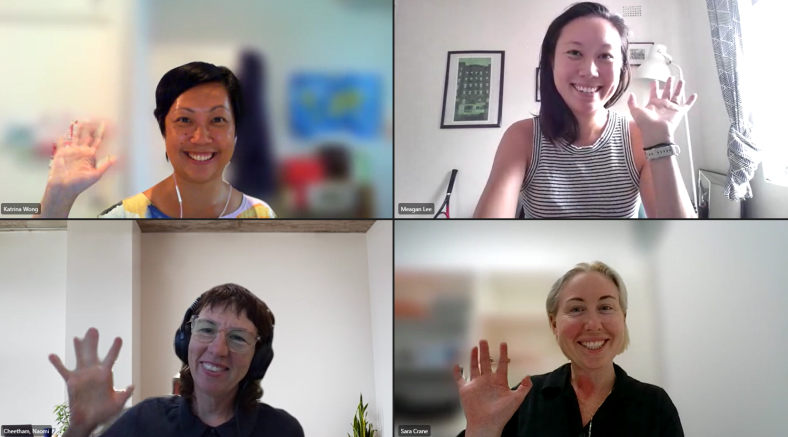Behavioural Insights in Practice: the Legal Aid NSW immersion program
Complex social justice issues can benefit from a behavioural insights approach. Learn how Legal Aid NSW applied behavioural insights to projects designed to support vulnerable clients.

The program
The immersion program was a collaboration between Legal Aid NSW and NSW Behavioural Insights Unit (BIU) which gave four Legal Aid staff hands-on experience in the methods and processes of behavioural insights. The aim was to increase the capacity of Legal Aid NSW to apply behavioural insights to benefit clients.
While co-located in the BIU, Katrina Wong, Meagan Lee, Sara Crane and Naomi Cheetham each worked on a Legal Aid project to improve outcomes for vulnerable clients. They also started a monthly Behavioural Insights Community of Practice for interested Legal Aid staff.
The projects
The objectives of their four projects were:
- make it easier to get help from Legal Aid NSW and apply for funding
- reduce the number of Drug Court participants being terminated from a reoffending reduction program
- increase compliance with justice orders by providing support after release from prison
- improve police bail decision-making processes to reduce avoidable short-term remand for young people.
What was learned
The value of fieldwork
All four secondees had the opportunity to conduct interviews, focus groups and observations with Legal Aid staff and agencies, including Community Corrections, the NSW Drug Court and NSW Police Force. What they learned was invaluable in understanding the issues, barriers and enablers to a behavioural intervention. Fieldwork also allowed them to test assumptions about how processes worked and to see things from a different perspective.
We knew things anecdotally, but it had a different impact when we saw the data in front of us. We were reminded about the vulnerability of Drug Court participants when we graphed their education and literacy levels.
Sara Crane – Drug Court Project
We make assumptions about why or how police make bail decisions – and the BI framework allows you to really see things from a different perspective.
Katrina Wong – Police bail and young people project
Co-designing is the key to success
The program participants found generating ideas in partnership is central to influencing behaviour and developing something people will want to use. Using human-centred design and humility principles (including critical self-reflection on their role and place in a project), they were able to engage with partners they did not regularly work with. They were also able to use behavioural insights tools such as the EAST framework to workshop interventions focused on making a change Easy, Attractive, Social and Timely.
Using behavioural insights in the future
Legal Aid NSW is keen to continue building staff capacity through a Behavioural Insights Community of Practice and apply behavioural insights to its diverse and multi-faceted client work.
I’m excited to see how behavioural insights can be used to strengthen and complement Legal Aid NSW’s policy and law reform work. It will be great to bring my behavioural insights knowledge back to help Legal Aid NSW become a ‘Behaviour Smart’ organisation!”
Meagan Lee
Behavioural insights can provide an effective and neutral framework to strengthen stakeholder relationships in working together to address complex social justice issues.
Katrina Wong